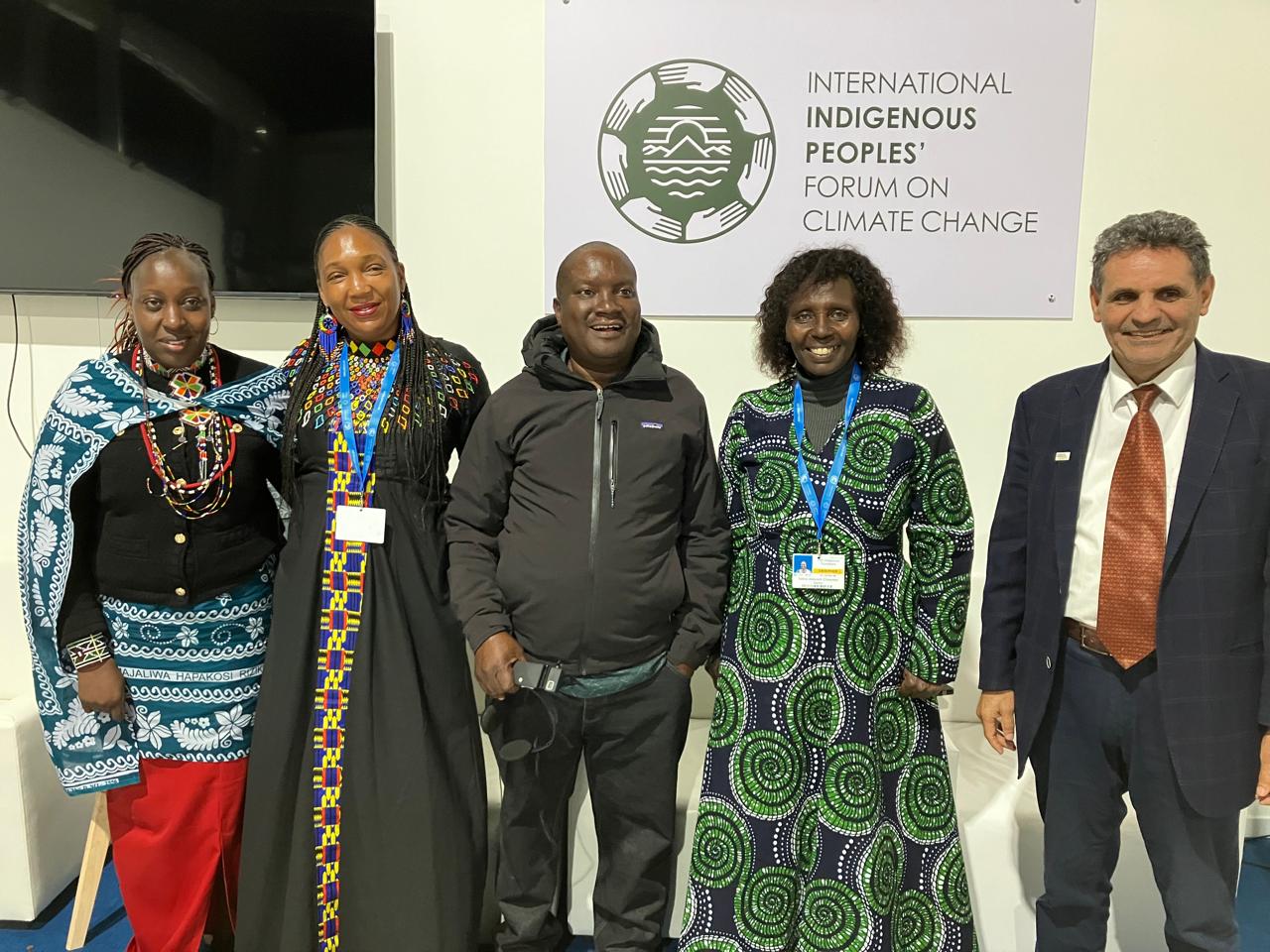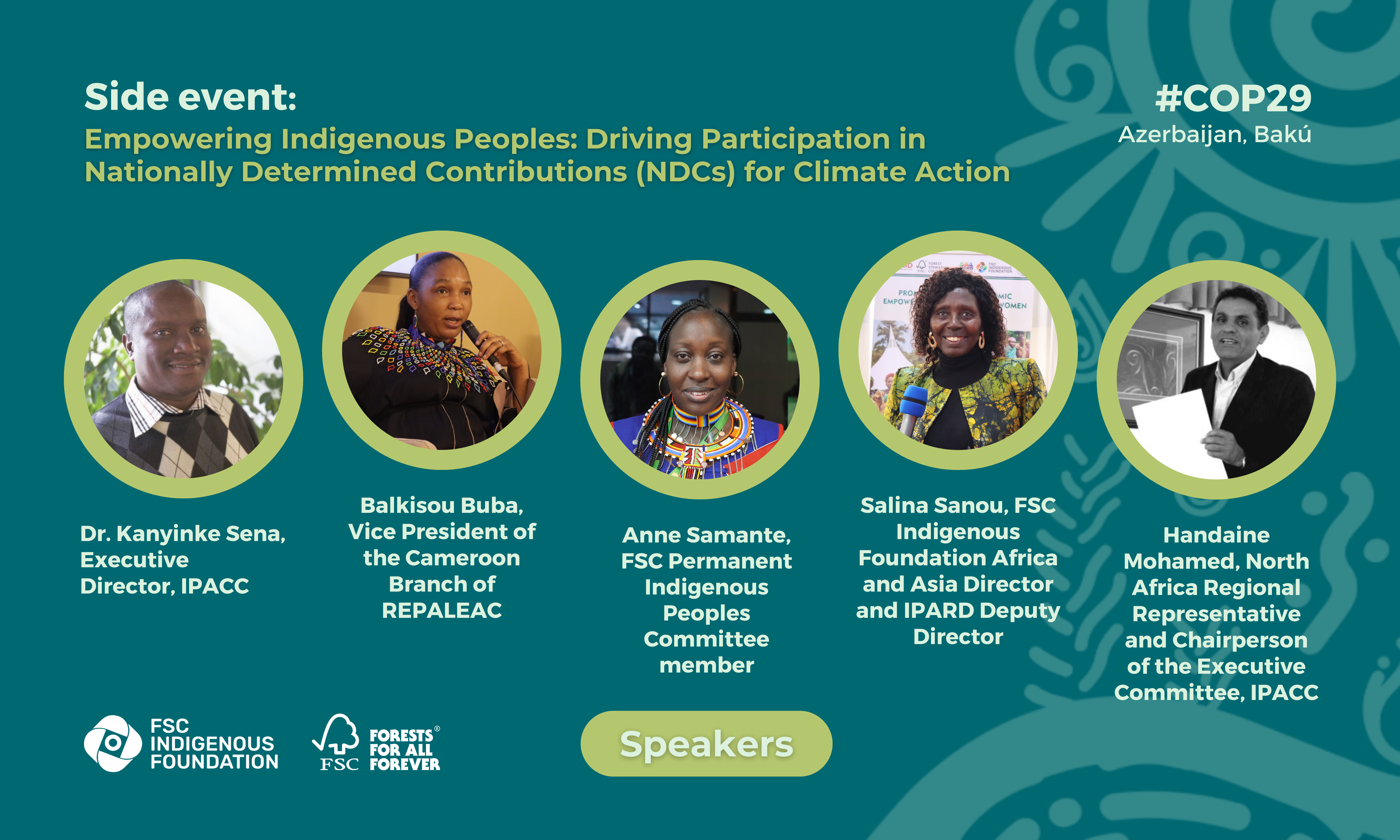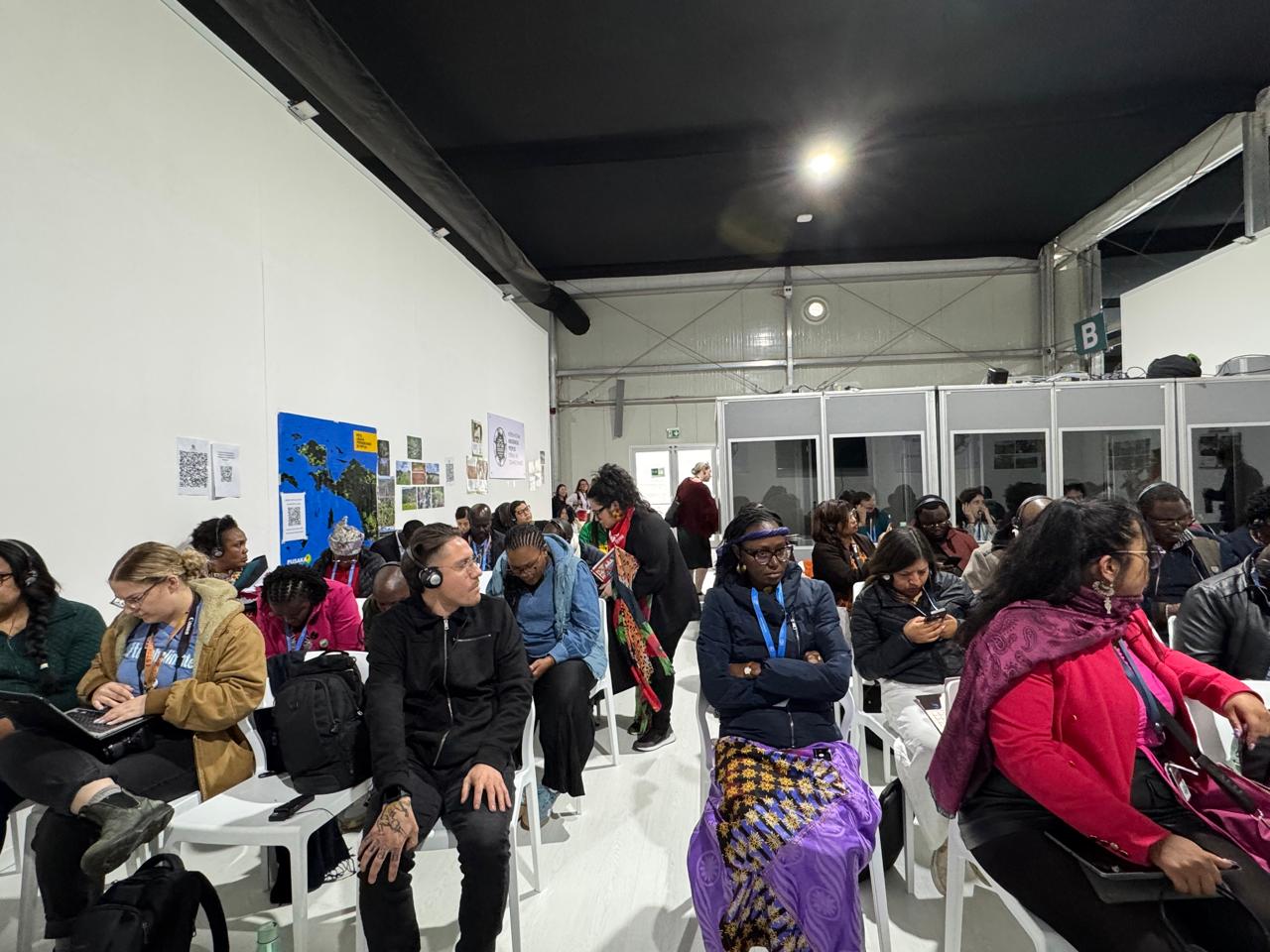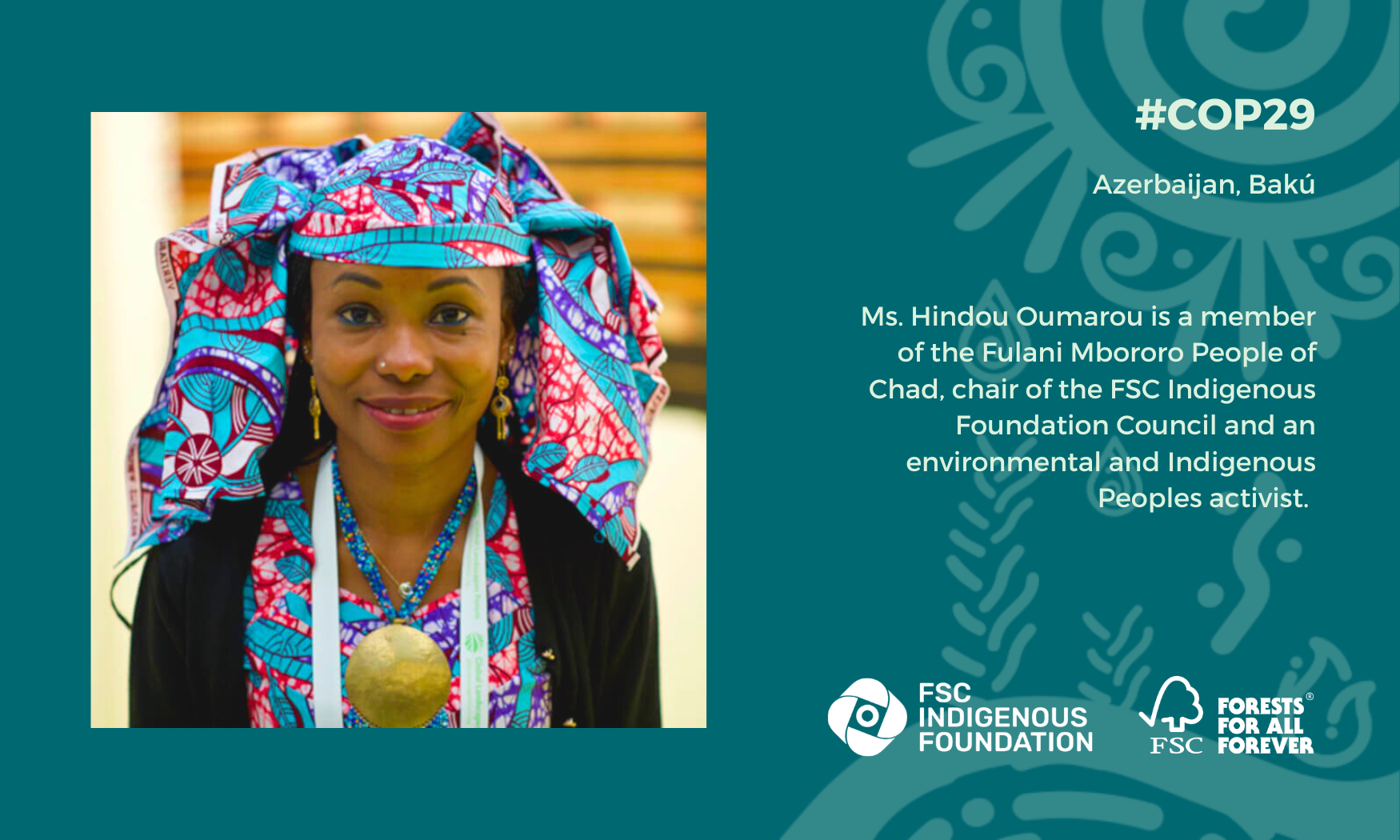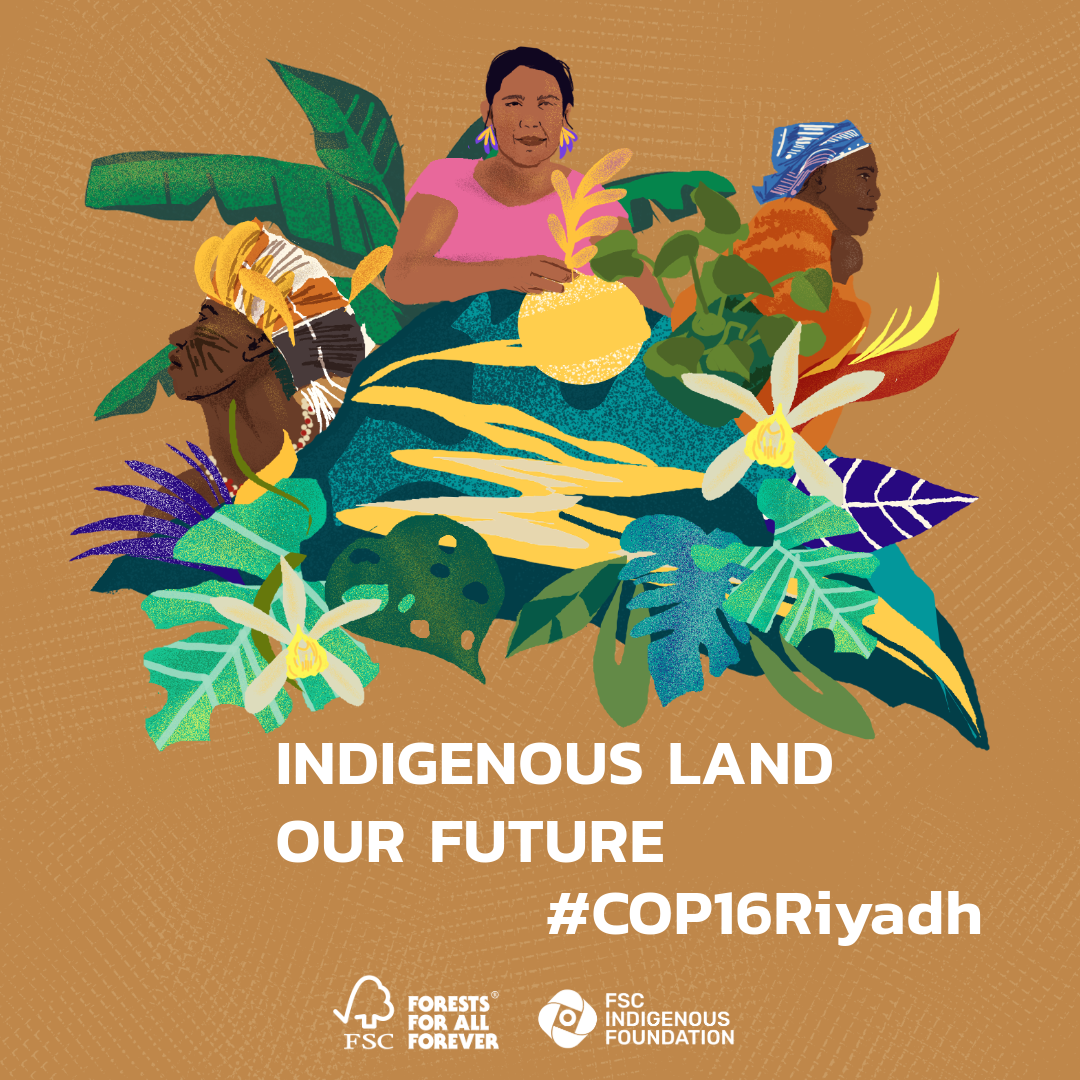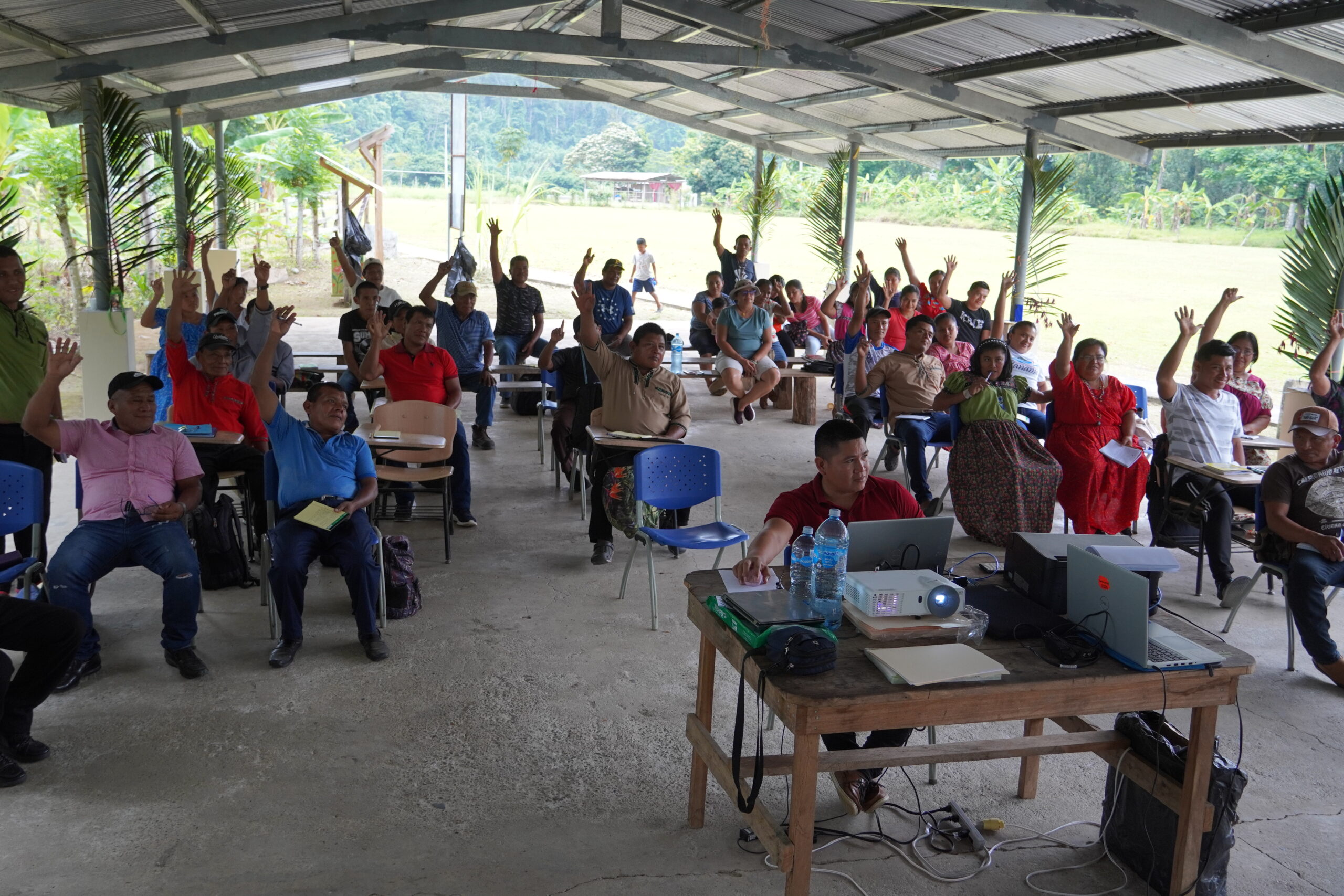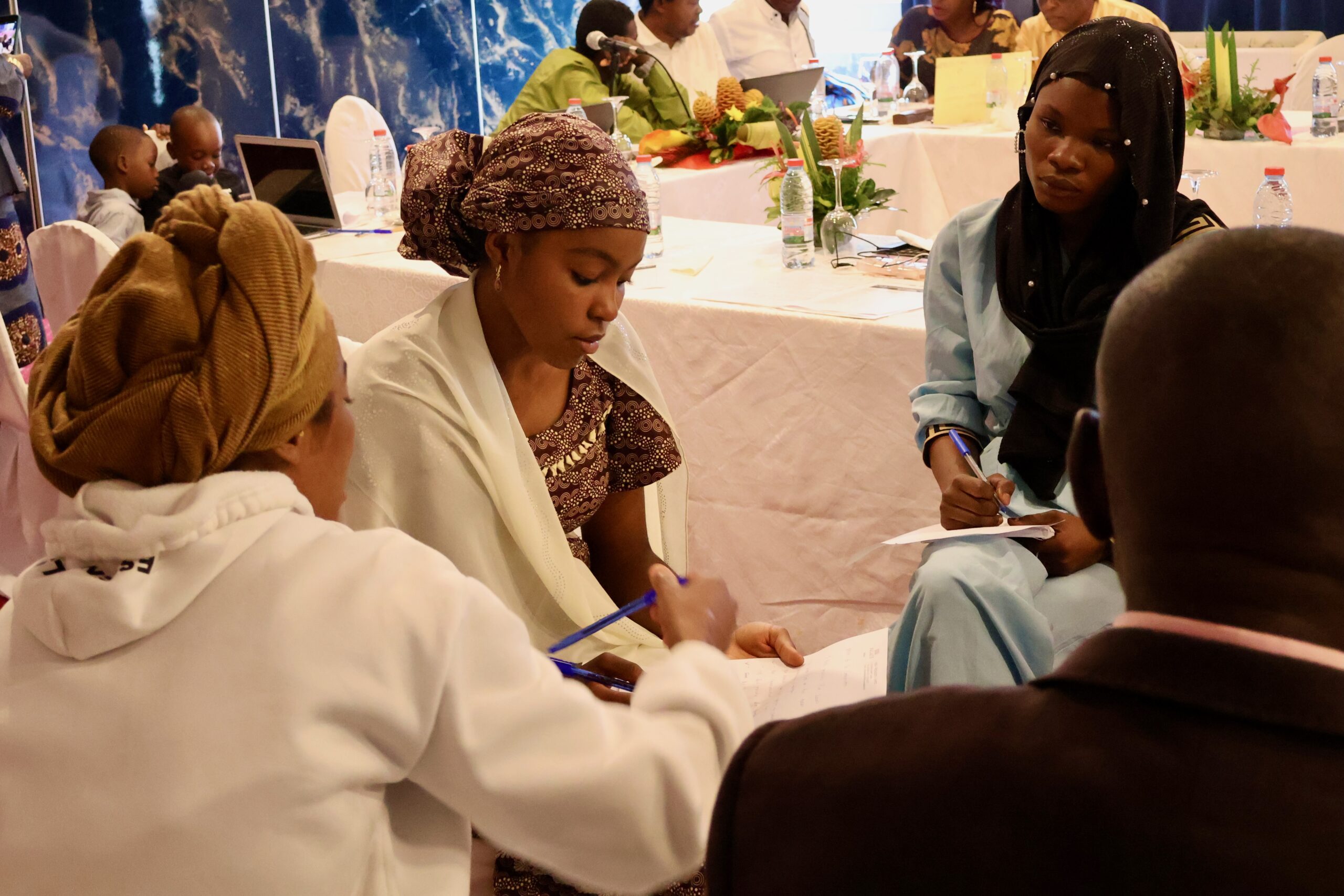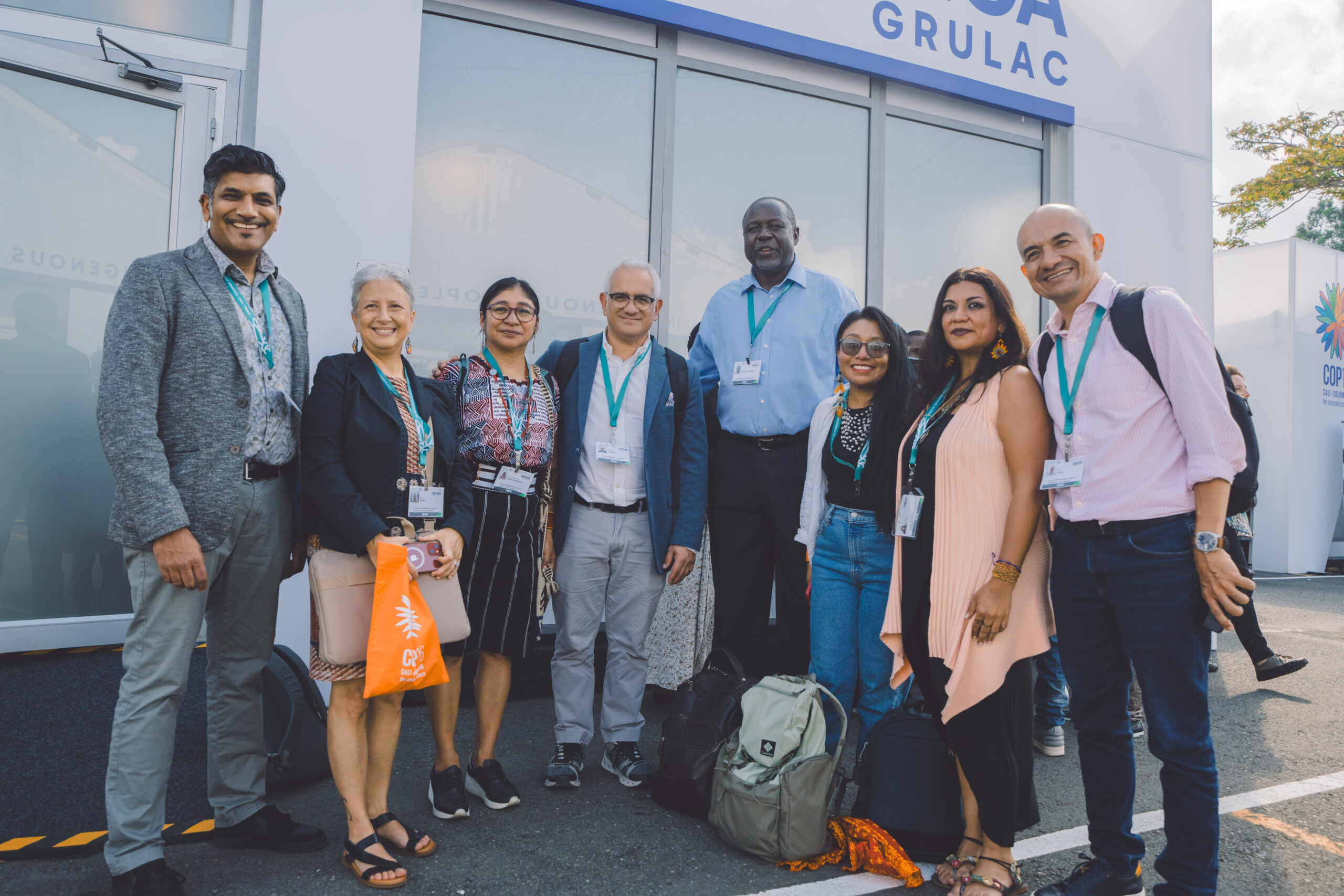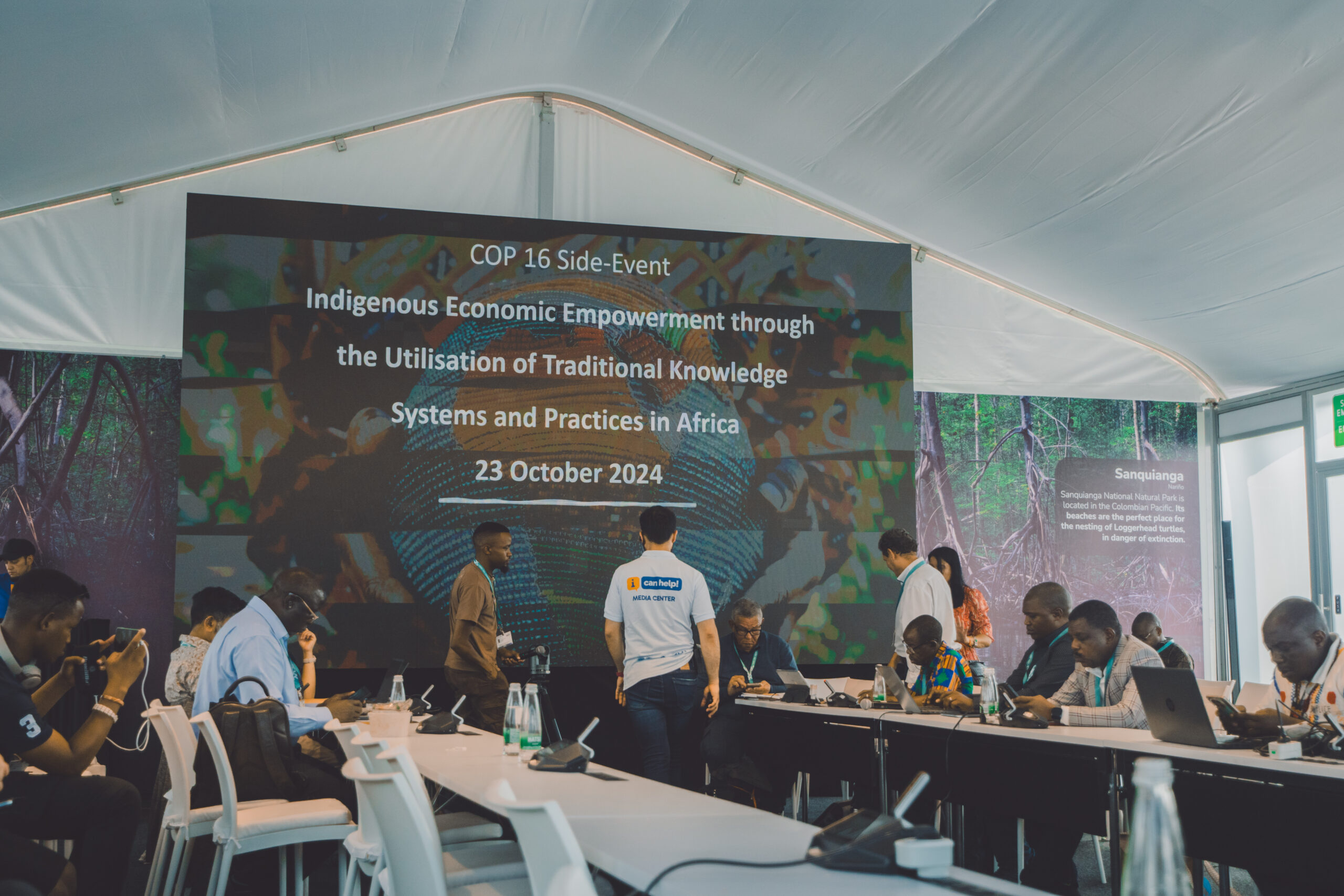Sacred Lands Indigenous Peoples Declaration at UNCCD COP16: A Global call for rights and land restoration
Indigenous Peoples unite at UNCCD COP16 to call for the recognition of their rights in land restoration and environmental policies. Read the Declaration.
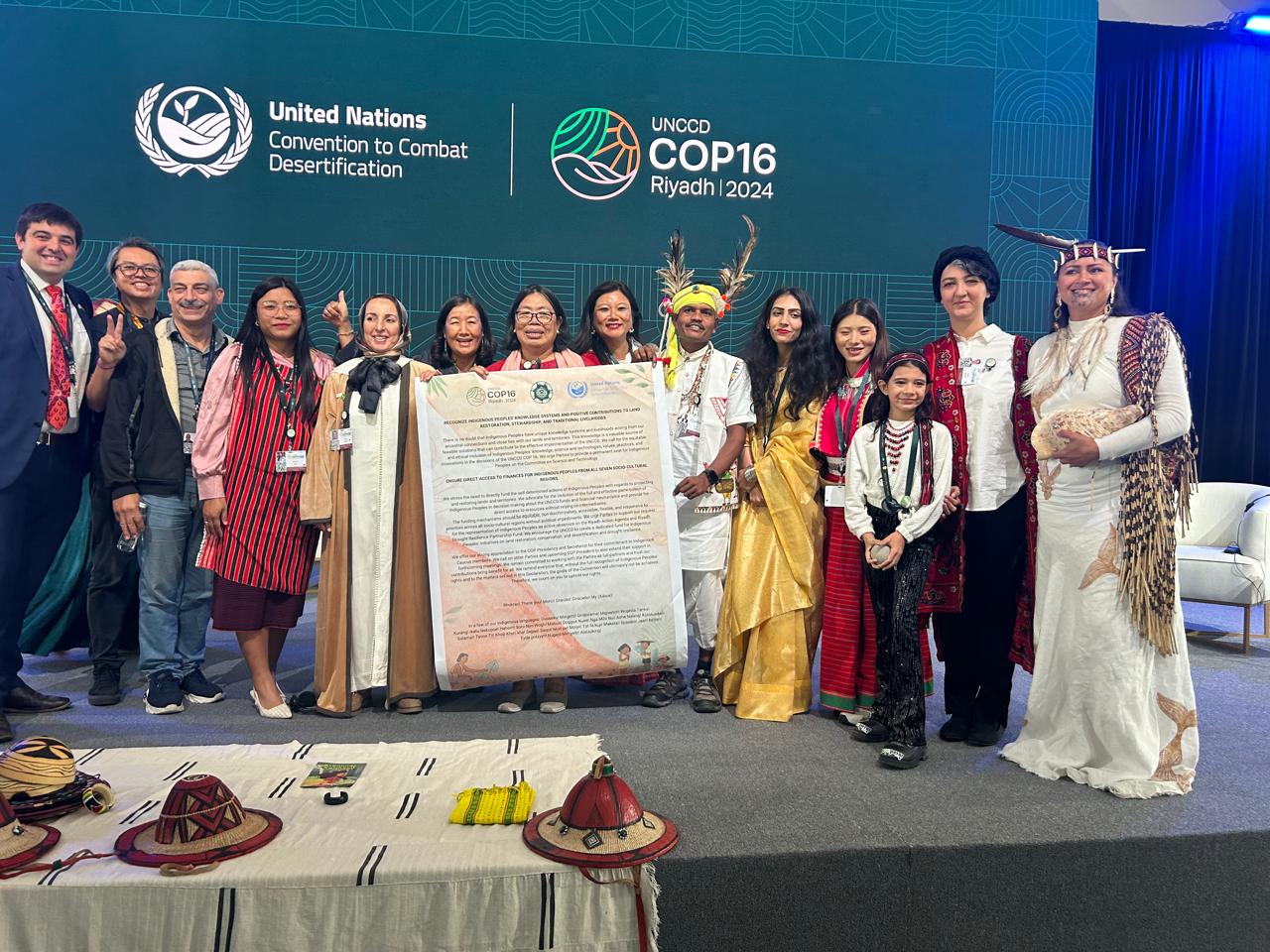
On December 7, 2024, during the United Nations Convention to Combat Desertification (UNCCD) COP16 in Riyadh, Saudi Arabia, Indigenous Peoples from across the globe came together to present the “Sacred Lands Indigenous Peoples Declaration.” This historic moment highlights the urgent need to recognize and uphold the rights of Indigenous communities in land restoration and environmental stewardship.
With decades of expertise in managing lands and territories, Indigenous Peoples continue to play a pivotal role in the fight against desertification, land degradation, and environmental crises. This declaration serves as a powerful call for global leaders and policymakers to respect, recognize, and support Indigenous rights in all land-related decisions and actions.
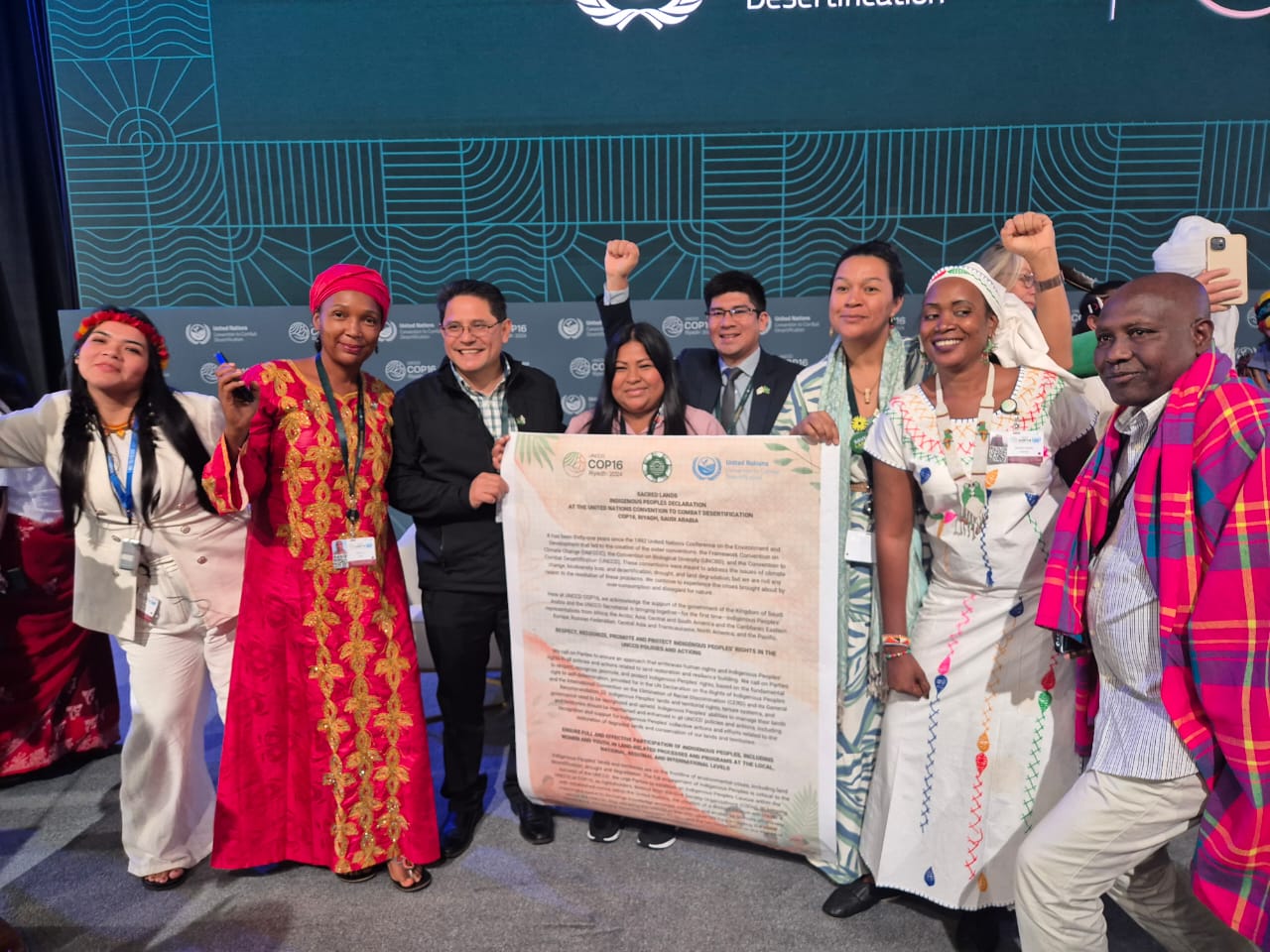
The FSC Indigenous Foundation is proud to have supported this historic achievement.
Below is the full text of the declaration, outlining key calls to action for governments, policymakers, and the international community.
SACRED LANDS INDIGENOUS PEOPLES DECLARATION
AT THE UNITED NATIONS CONVENTION TO COMBAT DESERTIFICATION
COP16, RIYADH, SAUDI ARABIA
It has been thirty-one years since the 1992 United Nations Conference on the Environment and Development that led to the creation of the sister conventions: the Framework Convention on Climate Change (UNFCCC), the Convention on Biological Diversity (UNCBD), and the Convention to Combat Desertification (UNCCD). These conventions were meant to address the issues of climate change, biodiversity loss, and desertification, drought, and land degradation, but we are not any nearer to the resolution of these problems. We continue to experience the crises brought about by over-consumption and disregard for nature.
Here at UNCCD COP16, we acknowledge the support of the government of the Kingdom of Saudi Arabia and the UNCCD Secretariat in bringing together—for the first time—Indigenous Peoples’ representatives from Africa; the Arctic; Asia; Central and South America and the Caribbean; Eastern Europe, Russian Federation, Central Asia and Transcaucasia; North America; and the Pacific.
RESPECT, RECOGNIZE, PROMOTE AND PROTECT INDIGENOUS PEOPLES’ RIGHTS IN THE UNCCD POLICIES AND ACTIONS
We call on Parties to ensure an approach that embraces human rights and Indigenous Peoples’ rights in all policies and actions related to land restoration and resilience building. We call on Parties to respect, recognize, promote, and protect Indigenous Peoples’ rights, based on the fundamental right to self-determination, provided for in the UN Declaration on the Rights of Indigenous Peoples and the International Convention on the Elimination of Racial Discrimination (CERD) and its General Recommendation 23. Indigenous Peoples’ lands and territorial rights, tenure systems, and governance need to be recognized and upheld. Indigenous Peoples’ abilities to manage their lands and territories should be maintained and enhanced in all UNCCD policies and actions, including recognition and support for Indigenous Peoples’ collective actions and efforts related to the restoration of degraded lands and conservation of our lands and territories.
ENSURE FULL AND EFFECTIVE PARTICIPATION OF INDIGENOUS PEOPLES, INCLUDING WOMEN AND YOUTH, IN LAND-RELATED PROCESSES AND PROGRAMS AT THE LOCAL, NATIONAL, REGIONAL AND INTERNATIONAL LEVELS
Indigenous Peoples’ lands and territories are on the frontline of environmental crises, including land desertification, drought and degradation. The full engagement of Indigenous Peoples is critical to the success of the UNCCD. We urge Parties to establish an Indigenous Peoples Caucus within the UNCCD at COP16, as rightsholders, distinct from the Civil Society Organizations (CSOs). In keeping with established norms within the United Nations, the creation of a distinct caucus will create a meaningful space to exchange knowledge amongst ourselves and enable us to more effectively advise the UNCCD. This will bring the UNCCD in line with other UN fora, including the sister conventions, the General Assembly resolution 71/321, and the UN Declaration on the Rights of Indigenous Peoples.
RECOGNIZE INDIGENOUS PEOPLES’ KNOWLEDGE SYSTEMS AND POSITIVE CONTRIBUTIONS TO LAND RESTORATION, STEWARDSHIP, AND TRADITIONAL LIVELIHOODS
There is no doubt that Indigenous Peoples have unique knowledge systems and livelihoods arising from our ancestral connections and close ties with our lands and territories. This knowledge is a valuable source of feasible solutions that can contribute to the effective implementation of the UNCCD. We call for the equitable and ethical inclusion of Indigenous Peoples’ knowledge, science and technologies, values, practices, and innovations in the decisions of the UNCCD COP16. We urge Parties to provide a permanent seat for Indigenous Peoples on the Committee on Science and Technology.
ENSURE DIRECT ACCESS TO FINANCES FOR INDIGENOUS PEOPLES FROM ALL SEVEN SOCIO-CULTURAL REGIONS
We stress the need to directly fund the self-determined actions of Indigenous Peoples with regards to protecting and restoring lands and territories. We advocate for the inclusion of the full and effective participation of Indigenous Peoples in decision making about the UNCCD funds and financial mechanisms and provide for direct access to resources without relying on intermediaries. The funding mechanisms should be equitable, non-discriminatory, accessible, flexible, and responsive to priorities across all socio-cultural regions without political impediments. We urge Parties to support our request for the representation of Indigenous Peoples as active observers on the Riyadh Action Agenda and Riyadh Drought Resilience Partnership Fund. We encourage the UNCCD to create a dedicated fund for Indigenous Peoples’ initiatives on land restoration, conservation, and desertification and drought resilience.
We offer our strong appreciation to the COP Presidency and Secretariat for their commitment to Indigenous Caucus members. We call on other Parties and upcoming COP President to also extend their support in forthcoming meetings. We remain committed to working with the Parties as full partners and trust our contributions bring benefit for all. We remind everyone that, without the full recognition of Indigenous Peoples’ rights and to the matters set out in this Declaration, the goals of the Convention will ultimately not be achieved. Therefore, we count on you to uphold our rights.
Shukran! Thank you! Merci! Gracias! Спасибо! 谢谢 (Xièxie)!
In a few of our Indigenous languages: Ousseko! Mingetti! Ondjarama! Miigwetch! Wophila Tanka! Kurang! Ikatu Nekopoe! Hahom! Soro Nyo Wogh! Matiox! Doggus Nued! Nga Mihi Nui! Ashe Naleng! Kotoluadan! Salamat! Tyoox Tii! Khop Khun kha! Sepas! Saqol! Morȋ pe! Molyii! Tat fa kup! Maketai! Spasibo! Jaaн byiyan! Eyde polzyyn! Nugen! Min yetti! Alatsüking!
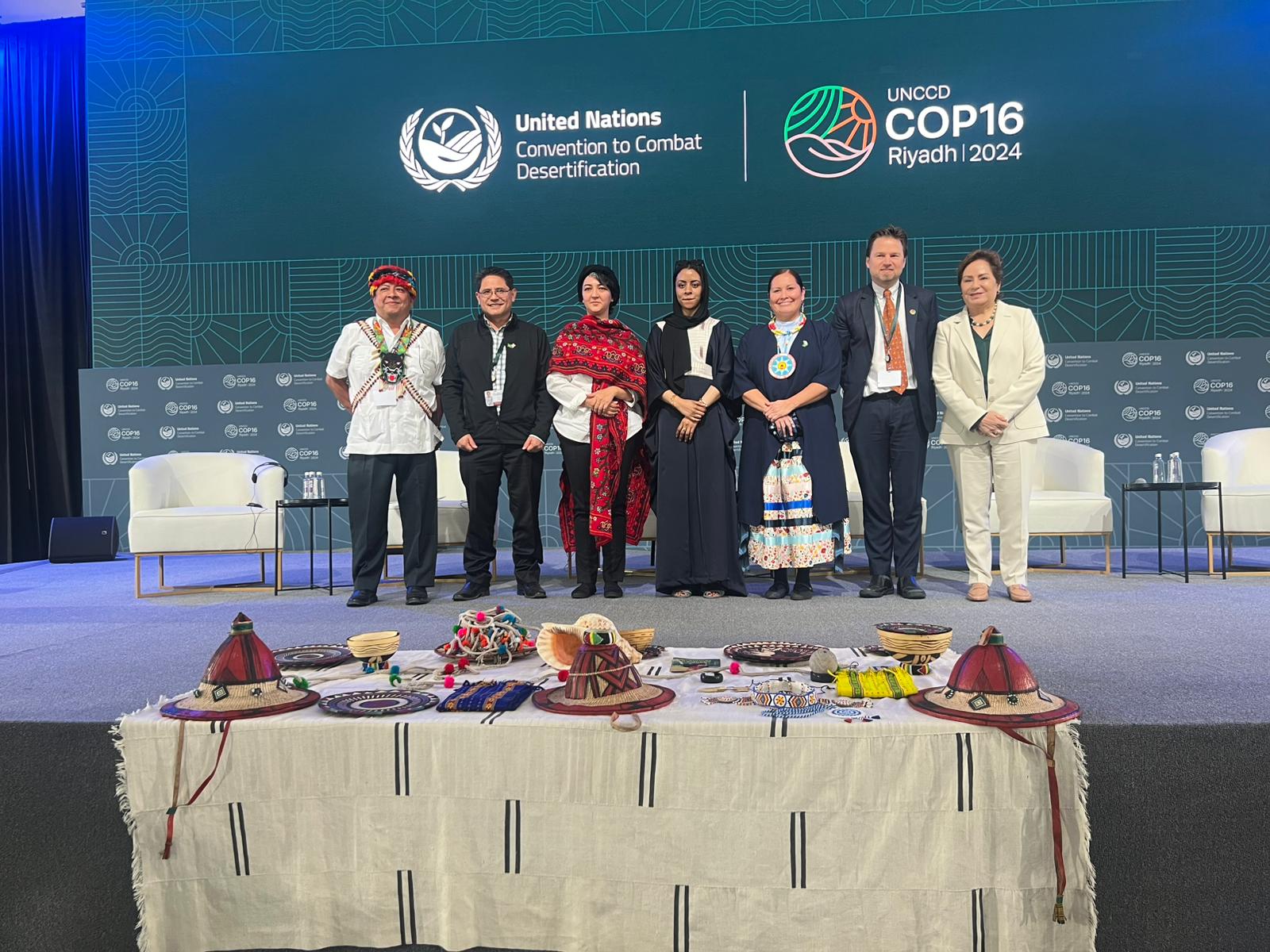
Conclusion:
The “Sacred Lands Indigenous Peoples Declaration” is a crucial reminder that the future of our planet depends on Indigenous leadership and knowledge. With 31 years having passed since the creation of the UNCCD and its sister conventions, the need for meaningful change has never been more urgent.
The declaration calls for the recognition of Indigenous rights, full participation in decision-making processes, and direct access to financial resources for land restoration and resilience efforts. As we move forward, we must center Indigenous solutions in the global fight against desertification and climate change—together, we can ensure a sustainable future for all.

